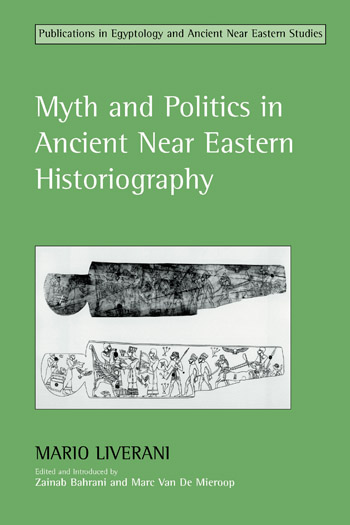5. Rib-Adda, righteous sufferer
Myth and Politics in Ancient Near Eastern Historiography - Mario Liverani
Mario Liverani [+]
University of Rome “La Sapienza”, (Emeritus)
Description
Rib-Adda was king of the harbor city of Byblos, on the coast of present-day Lebanon, in the early fourteenth century when Egypt controlled the Syro- Palestinian area through a system of vassals. The king of Byblos was a prolific correspondent with the court of Egypt, under kings Amenophis III and IV, and between 59 and 63 letters from him are preserved in the Amarna archive (EA 68– 71, 73–95, 102–9, 112–4, 116–9, 121–7, 129–34, 136–8, 362; EA 101, 110, 111, and 120 are probably also his). In those he portrays himself as the victim of the kings of Amurru who pressure states in the region to abandon their allegiance to Egypt. As loyal vassal to Pharaoh he sees himself under constant threat and implores the king to help him. Ultimately, he was indeed overthrown, not by outsiders but by his own brother, and he died in exile. The Amarna correspondence presents a rich source of information on how Egypt administered this area through a hands-off policy. Local dynasts, called mayors ( hazanu ) by the Egyptians while acknowledged as kings by their own subjects, had to provide annual payments whose collection was Egypt’s main concern. The Syro-Palestinian area was divided into three provinces, Kinahni (= Canaan), Ube, and Amurru, each of which had one centre of Egyptian administration, where a governor ( rabisu ) resided. The local kings competed with one another over territory and in their struggles hoped to gain Pharaoh’s support by presenting themselves as loyal vassals and the others as Egypt’s enemies. It is in this context that Rib-Adda’s letters have to be read. The kings of Amurru are the primary targets of his accusations and he claims that they rely on marauding bands of outcasts, the habiru , in their aggression. This chapter cautions against a literal reading of Rib-Adda’s letters, and interprets their style and contents as a reflection of the author’s self-portrayal as a righteous sufferer. Everything that is known about Rib-Adda derives from the Amarna letters (referred to as EA with the numbers typically assigned in the discipline). These have been recently retranslated into English by Moran (1992). Liverani’s own complete translations into Italian were published in 1998–99.






